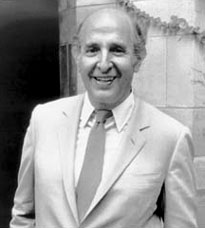
I recently engaged in a stimulating exchange with an Objectivist on twitter. I'll put it together here in a way one can't do in twitter's concision-is-everything format.
He picked the fight. There were too few Jamesians with whom to argue, so he found me, and made the sweeping, but characteristically O-ist, declaration that James' pragmatism abandoned "principles" for "efficiency."
Of course I responded that this was a canard.
After some back-and-forth we got to the issue of what is a tautology and whether it is a bad thing. When O-ists are pressed on this point, they tend to take the absurd position that every true statement is a tautology. Simply because every true statement says of something that it is, what it is.
The reason this is absurd: it squashes together "sense" and "reference."
The proper name "Samuel Clemens" and the pen name "Mark Twain" refer to the same man, the same biological organism. Hence they have the same reference. But they don't have the same sense. One conveys roughly the sense, "the man who wrote Huck Finn," the other conveys the sense, "an individual born in November 1835 in MO..." I could know a number of truths about both Clemens and Twain without knowing that Clemens was Twain.
Thus, if we understand the sense/reference distinction we can understand that the statement "Mark Twain was Mark Twain" is trivial, but the statement "Mark Twain was Samuel Clemens" is substantive, and may for some people at some times represent an important discovery.
How does this bring us back to pragmatism and principles-versus-efficiency? Well, in response to that canard, I had characterized Jamesian pragmatism as a victory in a two-front war, against the upper and the lower dogmatisms, against (speaking very roughly) Hegel and Clifford. In 21st century terms, both dogmatisms are still around, the upper represented by Allan Bloom, (and, I argue, by objectivism), the lower by Daniel Dennett. So it is important to continue re-enacting the Jamesian victory.
Part of this re-enactment has to involve the analytic/synthetic dichotomy. The upper dogmatists tend to dissolve this dichotomy by making all important statements analytical. Leibniz was a fine example of that. The objectivist contention that every truth is a tautology is likewise. The lower dogmatists tend to make the contrary error: they make the analytic/synthetic distinction into an absolute one (hence its renowned employment by David Hume as his "fork.") It cannot be absolute, as William James explicitly explained near the end of Principles of Psychology. It cannot be absolute, but it is real, as a continuum.
And for those of us who wish to avoid both dogmatisms it is important to know where, on the continuum from triviality to substance, one stands at a given moment.
I've rather arbitrarily illustrated this post with a photo of Allan Bloom, above.
Comments
Post a Comment